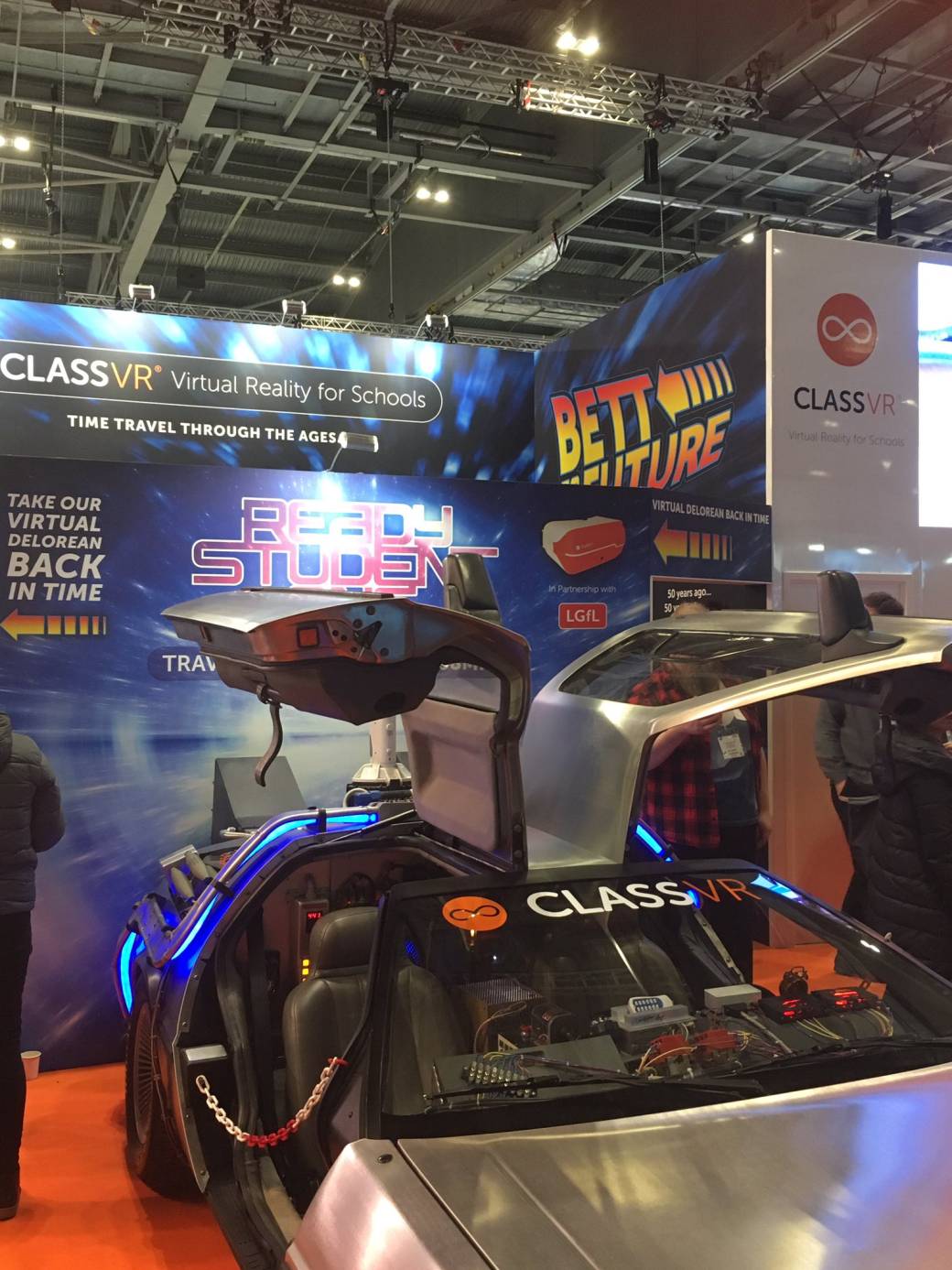Bett 2019: Jane discusses her day at the world’s biggest education technology event
06 February, 2019 Reading: 4:05 mins
I recently spent the day at BETT 2019 looking at and talking all things education. Two minutes in and it was pretty clear that school life and learning has been revolutionised by tech. So what were my highlights?

I recently spent the day at BETT 2019 looking at and talking all things education. Two minutes in and it was pretty clear that school life and learning has been revolutionised by tech. So what were my highlights?
Learning really can be fun
Celebrating its 250th anniversary, Britannica Digital Learning took the opportunity to tell us all about their journey and plans to transform education around the world. But what really caught my eye was the talk from Baasit Siddiqui (of Gogglebox fame) who was at the stand to talk about his experience with Britannica’s brand new LumieLabs resource, which he believes has helped him foster creativity and confidence with the students he has worked with.
Launching in spring this year, LumieLabs has been developed to ‘disrupt the status quo and shape a new future for classroom learning with video.’ The aim of the resource – which features millions of royalty free clips, cloud based editing and secure video hosting and student assignment functionality – is to empower the next generation of learners to thrive in a media-centric world.
And to be perfectly frank, when learning can be this fun what’s not to love about it? Particularly when its main aim is to help students become collaborators, communicators and media savvy consumers with critical-thinking skills.
I managed to pull together a pretty decent video on the melting ice caps – so I’ll be keeping an eye out for this over the coming months following its launch and will watch with interest on how it is received by educators.
It’s all about AR, VR and Mixed Reality
Dominating this year’s show were all things immersive – I went Back to the Future in a DeLorean time machine and it (almost) made me want to go back to school! Happily sat (well standing – it was VR) in my 80s classic I took a trip back in time to the trenches of World War 1 where I got a personal view (from my DeLoren of course!) of what life was like during the Battle of the Somme. I was also transported to Ancient Egypt – far more exciting than learning about it all from a book.
Visiting the Class VR stand was an engaging experience – what I would give to have learnt history in this way. They offer a complete VR and AR system for the classroom which provides an engaging, immersive experience for students of all ages, and allows them to view and understand subjects and topics through personal experience. According to the company ‘the immersion and engagement students gain from VR dramatically increases their ability to understand and retain information.’
The tech giants have already cottoned on to the impact of this tech with the likes of Google Expeditions offering a fully immersive learning experience and Apple’s ARKit being used in classrooms around the world to help transform lessons.
According to research carried out by Lenovo in 2018, ‘94% of UK teachers believe that virtual reality would improve classroom teaching and almost half of teachers estimate it will be commonplace in schools in the next five years.’ Clearly this tech is here for the long haul and educators are going to have to embrace it.
Mental Health takes a role
As a parent of three school-aged children, all issued with school iPads and who seem to spend their lives on social media, I was reassured by the clear focus on mental health and wellbeing amidst all the tech. With a series of talks ranging from ‘Empowering learning through cognitive fitness and healthy habits’ through to ‘Championing positive mental health’ it was abundantly clear that in an era of digital learning, a clear focus must be placed on developing powerful and effective strategies around whole-school approaches to wellbeing. Particularly important given that the 2018 Education Innovation Index (commissioned by BETT) found that just 54% of educators surveyed feel equipped to deal with any negative effects social media may have on learners’ mental wellbeing.
Safe and secure
No surprises that with all the tech advancement, and educators embracing the digital world, come the necessary safeguarding concerns. Reassuringly online safety and security had a heavy presence at BETT 2019 and I left the event feeling pretty reassured that we’re in safe hands.
With today (5 February 2019) being Safer Internet Day, and more than a thousand organisations and schools across the UK getting involved to help inspire a national conversation about using tech responsibly, safely and respectfully let’s hope this continues to be a major theme in years to come. I’m already looking forward to BETT 2020 – who knows where it will take me?
